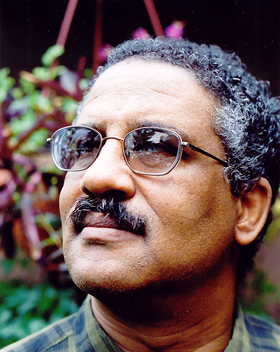Rise and Fall of Black Panther Party Discussed at WSU for Black History Month
OGDEN, Utah – Author and historian Waldo E. Martin Jr. will dissect the history, politics, growth and decline of the Black Panther Party as part of Black History Month movement at Weber State University Feb. 10 at 7 p.m. in the Lindquist Alumni Center Dumke Legacy Hall.
 Martin also will explore what caused young people to risk their lives for the revolution, and why the party grew most rapidly during the height of repression but was abandoned by party allies at the peak of its influence.
Martin also will explore what caused young people to risk their lives for the revolution, and why the party grew most rapidly during the height of repression but was abandoned by party allies at the peak of its influence.
The community is invited to attend the free lecture sponsored by WSU’s Department of History. History professor Branden Little, one of Martin’s former students at the University of California, Berkeley, is pleased that WSU students will have the chance to learn from one of the world’s foremost black history scholars and a leading expert on the Black Panther Party.
“I am delighted that we are able to bring Dr. Martin to campus to share the story of black radicalism in the ’60s and ’70s,” Little said.
The Black Panther Party began in 1966 and continued until 1982. The movement’s goal was to achieve political and social equality for black people throughout the U.S.
The party generated controversy, even among members, because of its revolutionary socialist ideals, public protests — often while carrying loaded shotguns — and use of threats and violence.
Martin’s recent book, “Black Against Empire: The History and Politics of the Black Panther Party,” is based on 12 years’ research and is the first comprehensive analysis of the history and politics of the Black Panther Party.
Martin’s other books include “No Coward Soldiers: Black Cultural Politics in Postwar America,” “Brown v. Board of Education: A Brief History with Documents” and “The Mind of Frederick Douglass.”
In 1926, historian Carter G. Woodson selected the second week in February — the week in which both Abraham Lincoln and Frederick Douglass were born — to honor black culture.
That week eventually expanded to Black History Month and was recognized nationally in 1976 by President Gerald Ford.
“Black History Month provides an opportunity for the community to reflect on the myriad contributions African-Americans have made to American society,” Little said. “Dr. Martin's talk will allow us also to better understand the historical and enduring challenges of advancing civil rights protections for all Americans.”
Visit weber.edu/wsutoday for more news about Weber State University.
 Martin also will explore what caused young people to risk their lives for the revolution, and why the party grew most rapidly during the height of repression but was abandoned by party allies at the peak of its influence.
Martin also will explore what caused young people to risk their lives for the revolution, and why the party grew most rapidly during the height of repression but was abandoned by party allies at the peak of its influence.The community is invited to attend the free lecture sponsored by WSU’s Department of History. History professor Branden Little, one of Martin’s former students at the University of California, Berkeley, is pleased that WSU students will have the chance to learn from one of the world’s foremost black history scholars and a leading expert on the Black Panther Party.
“I am delighted that we are able to bring Dr. Martin to campus to share the story of black radicalism in the ’60s and ’70s,” Little said.
The Black Panther Party began in 1966 and continued until 1982. The movement’s goal was to achieve political and social equality for black people throughout the U.S.
The party generated controversy, even among members, because of its revolutionary socialist ideals, public protests — often while carrying loaded shotguns — and use of threats and violence.
Martin’s recent book, “Black Against Empire: The History and Politics of the Black Panther Party,” is based on 12 years’ research and is the first comprehensive analysis of the history and politics of the Black Panther Party.
Martin’s other books include “No Coward Soldiers: Black Cultural Politics in Postwar America,” “Brown v. Board of Education: A Brief History with Documents” and “The Mind of Frederick Douglass.”
In 1926, historian Carter G. Woodson selected the second week in February — the week in which both Abraham Lincoln and Frederick Douglass were born — to honor black culture.
That week eventually expanded to Black History Month and was recognized nationally in 1976 by President Gerald Ford.
“Black History Month provides an opportunity for the community to reflect on the myriad contributions African-Americans have made to American society,” Little said. “Dr. Martin's talk will allow us also to better understand the historical and enduring challenges of advancing civil rights protections for all Americans.”
Visit weber.edu/wsutoday for more news about Weber State University.
- Ivonne Dabb, University Communications
801-626-7948 • ivonnedabb@weber.edu - Contact:
- Branden Little, WSU history professor
801-626-6710 • jblittle@weber.edu
